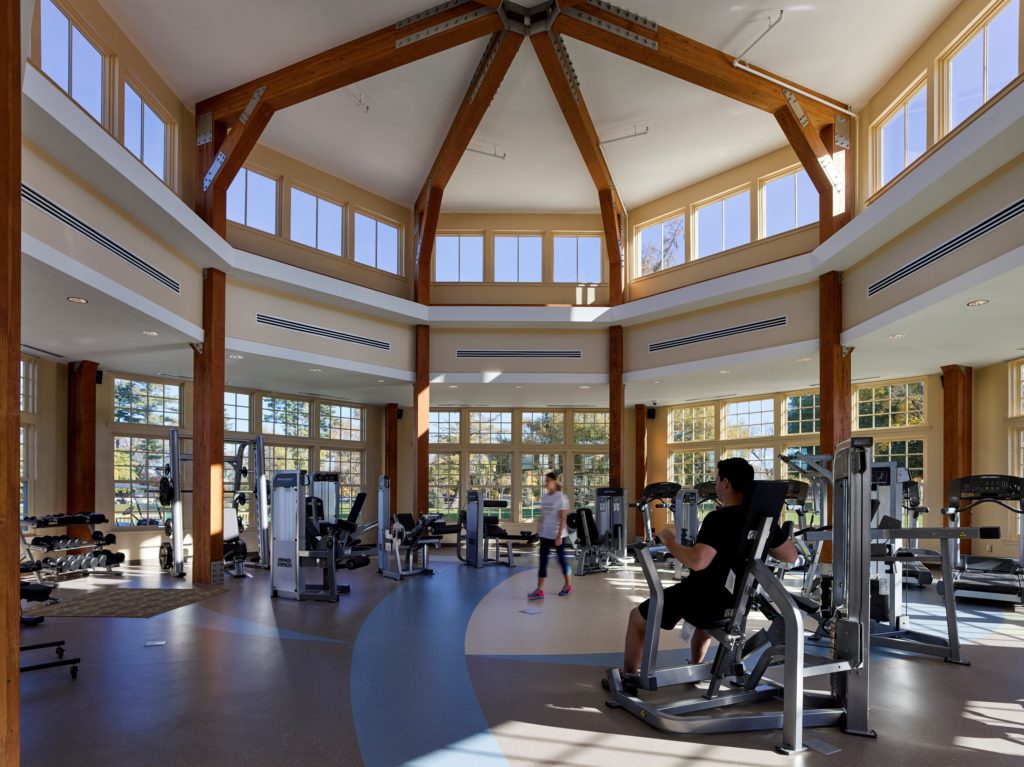

Inpatient Rehab Center in Maryland
Our inpatient addiction rehab programs take place on our 147-acre main campus in Havre De Grace, Maryland. Nestled into the Chesapeake Bay, we designed our facilities to give you the motivation needed to heal your mind, body and spirit.
Creating a path to lifelong recovery
Overcoming the disease of addiction may feel impossible, but you can live a life free of substance abuse. We tailor our inpatient addiction treatment to your needs and use medical, clinical and holistic care to heal the whole self. With evidence-based treatment, we’ll help to increase your chances of long-term recovery so you can live life fully again.
During your stay in our inpatient rehab program, you’ll be surrounded by inspiration — from expansive greenery and gardens to the sunrises over the water to the onsite chapel. We take care of your everyday needs, so you can focus on creating lasting change in your life.
Explore our inpatient rehab programs
Outpatient vs Inpatient Rehab
Treatment for substance use disorders encompasses a comprehensive approach, whether through outpatient or inpatient programs, both aimed at guiding individuals toward sobriety. The goals include fostering healthy cognitive patterns and equipping them with tools for long-term sobriety. Inpatient programs incorporate individual psychotherapy, group and family therapy, educational sessions, medication-assisted recovery, integration of 12-step programs, holistic activities, and nutritional support. Outpatient therapy similarly includes these components but in a less intensive format, accommodating individuals who may benefit from a more flexible treatment schedule.
Is Inpatient Rehab Right For Me?
You may wonder how to know which level of care is the best option for you. Here are some considerations to keep in mind when choosing between outpatient and inpatient treatment:
- Severity of the substance use disorder: Generally, inpatient treatment is the recommended level of care for a moderate to severe substance use disorder. Inpatient programs offer a more controlled environment and allow you to remove yourself from exposure to substances.
- Insurance coverage: Financial considerations are often the deciding factor when choosing between outpatient and inpatient care, as outpatient care is less expensive. Which treatment setting you select may depend on your specific health plan’s coverage and/or your financial resources.
- Whether you have a co-occurring mental health disorder: A dual diagnosis inpatient program is the optimum treatment setting for an individual with co-occurring disorders. These programs include psychiatric care, as well as substance recovery specialists. Some outpatient programs also offer mental health support.
- Medical and Psychological Monitoring: Inpatient programs typically offer more frequent medical and psychological monitoring by professionals, which can be crucial during the early stages of recovery or for individuals with complex medical needs.
- The ability to take an extended leave: If you have work or family obligations that prevent you from taking an extended leave, an outpatient program may be the answer. These programs provide more flexibility and, therefore, accommodate your need to continue fulfilling work or parenting responsibilities.
- Whether or not you have a supportive home environment: Outpatient treatment is a viable option when your home environment is supportive of your recovery efforts. If it is not, you may consider sober living while enrolled in an outpatient program, or choosing inpatient treatment instead.
- Also, keep in mind that, for many individuals, an outpatient program is an excellent step down from inpatient treatment. The good news is that there are so many options available to suit your personal recovery needs.
- Geographical Considerations: Depending on where you live, access to quality outpatient or inpatient facilities may vary. Some areas may have limited options for inpatient care, making outpatient treatment a more practical choice despite personal preferences or needs.
Benefits of Inpatient Rehab
Inpatient rehab programs offer significant advantages due to their immersive and structured approach to treatment. Participants reside at the treatment facility throughout their program, ensuring continuous monitoring and support around the clock. This residential setting allows individuals to focus entirely on their recovery without distractions from their usual environment. Inpatient programs typically provide a wide array of therapeutic modalities, including individual therapy, group counseling, family therapy, educational sessions, and holistic activities like yoga or art therapy. Moreover, many inpatient facilities offer alumni services and ongoing case management to assist individuals in transitioning back to their home environment, ensuring they have continued support and resources to maintain their sobriety post-treatment. This intensive level of care in a supportive environment enhances the likelihood of successful recovery and long-term wellness for those struggling with substance use disorders.


